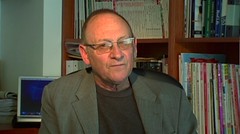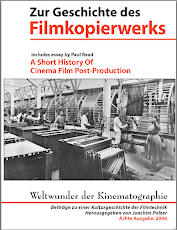 Film-Nr.: 221
Film-Nr.: 221Vorführungstermin: Donnerstag, 13. August 2009, 15 Uhr [VN22]
Themenschwerpunkt: Yes we can! — Obamas Amerika (2)
Englischer Titel: The Best Government Money Can Buy?
Originaltitel: The Best Government Money Can Buy?
Deutscher Titel: Die beste Regierung, die man für Geld kaufen kann?
Herkunft: USA 2009
Laufzeit: 90 min.
Sprachfassung: Englische Originalfassung
Regie: Francis Megahy
Produzent: Scott Wolf
Schnitt: Autumn Mason, Ben Jackendoff
Kamera: Ed Hajarian
Musik: Kendall Marsh
Produktion: Bedford Communications Inc., Los Angeles
Premierenstatus: Work in Progress Preview
Kurzinhalt: Ein tiefschürfender und analysierender Dokfilm über das umfassende System des Lobbyismus in den USA, vor allem auch unter den Geischtspunkten von Parteien- und Wahlkampffinanzierung.
Trailervideo: http://blip.tv/file/2243002 + http://www.youtube.com/watch?v=E0xWFPV9evI&feature=PlayList&p=4B4FE5E49176D406&index=7
Englische Synopsis: THE BEST GOVERNMENT MONEY CAN BUY? is the first behind-the-scenes, comprehensive, non-partisan examination of the system of lobbying in Washington, DC.
Englische Werkbeschreibung: In Washington, DC, there are 535 elected representatives of the United States' people. There are also more than 30,000 lobbyists. During the 2008 presidential campaign, the subject of intense debate was: how much control should our elected bodies have over lobbyists, and over lobbying in general? THE BEST GOVERNMENT MONEY CAN BUY? is the first behind-the-scenes, comprehensive, non-partisan examination of the system of lobbying in Washington, DC. Lobbyists control billions of dollars, which they use to try and influence legislation. In 2006-7, lobbyists spent $13.5 million a day. The drug lobby alone spent $155 million! Veteran documentary film-maker, British-born Francis Megahy, makes a journey of discovery as he tries to answer some questions which puzzle him: who provides the money? What effect does it have? How is it connected to the financing of political campaigns? And most crucial: is it in the public interest? The cost of election campaigns has spiraled out of control, to the extent that, on average, our representatives spend more than 25% of their time fund-raising. Even the President regularly interrupts the nation’s work in order to spend time fund-raising! Raising funds to get elected – that's the key interface between lobbyists and Members of Congress. Lobbyists have served as treasurers for at least 800 Political Action Committees and 68 campaign committees in the past six years. These committees spent more than $525 million to influence the political process. In fact, they spent more money than President George W. Bush and Sen. John Kerry combined raised in contributions during the 2004 presidential campaign. In the past six years, lobbyists have channeled more than $13 billion into the political process. It’s hard to imagine that such huge sums are spent to no effect.

THE BEST GOVERNMENT MONEY CAN BUY? talks directly to key Washington insiders – who often speak with surprising candor. LOBBYISTS’ INFLUENCE Lobbyists have more than simple access to senators and representatives. Many of the laws of the United States are written not by its elected representatives, but by Lobbyists, who frequently draft the detailed legislation, which is then enacted by the elected representatives. At a later date, those same lobbyists will provide finance for the election campaigns of those same representatives. This astonishing practice is unknown in most democracies, and in some would result in legal prosecution. Lobbyists and their critics make passionate arguments on both sides of this issue. THE BEST GOVERNMENT MONEY CAN BUY? asks: Is the public interest best served by the current state of affairs? THE REVOLVING DOOR A controversial aspect of the Lobby system is the so-called Revolving Door – elected representatives can work and vote on bills which favor a particular industry – and then leave Congress for highly paid jobs representing that same industry. In the past ten years, more than 250 elected representatives have left Congress to become lobbyists. The temptations of the revolving door aren’t a mystery. In 2004, Republican Representative, Billy Tauzin, was Chairman of the House Energy and Commerce Committee, which has authority over the drug industry. In June 2004, Mr. Tauzin was a principal author of the Medicare Prescription Drug law. That law bars the Federal Government from negotiating bulk discounts with drug-makers. After the passage of the Bill, Mr. Tauzin did not run for reelection, because he had a new job: President of the Pharmaceutical Research and Manufacturers of America, the chief lobby for brand-name drug companies At the rate at which we paid Tauzin to represent us in Congress – $154,400 a year – it would have taken him thirteen years to earn what the pharmaceutical industry now pays him each year: $2 million! Free Speech Lobbyists and Legislators tell THE BEST GOVERNMENT MONEY CAN BUY? that Lobbying is not the exclusive purview of Unions or Big Business. It’s your right to band together with your fellow-citizens and make your opinions known to lawmakers. The defense of lobbying is based on the First Amendment: 'Congress shall make no law.... abridging the freedom of speech.... or the right of the people peaceably to assemble, and to petition the government for a redress of grievances.' The American League of Lobbyists claims “ every interest in the United States uses lobbyists--a fact little known by the general public.... While most people think of lobbyists only as paid professionals, there are also many independent, volunteer lobbyists – all of whom are protected by the same First Amendment.” Any group of citizens can get together and pool their resources to create a lobby. But is it credible that ‘mom-and-apple pie’ interests can compete with the vast resources of corporate interests? Or, does the overwhelming and permanent advantage rest with those with the deepest pockets, vested interests, unions, and big corporations? Is the present situation truly what the Founding Fathers had in mind when they drafted the First Amendment? Finally... Lobbying is a perfectly open and legal activity; there is nothing secret about it. Yet the average citizen’s response to some of the stories we cover in this documentary will be one of astonishment. It is disturbing that in a democracy, such a powerful, effective and un-elected force, which is able to influence profound legislative changes affecting the lives of all Americans, can be so little known and so little understood by voters. Recent revisions in the rules governing lobbying sprang from a feeling expressed in the 2006 mid-term election that some “ethics” reform was necessary. But those changes have done nothing to cut off the flow of cash from lobbyists to political campaigns. THE BEST GOVERNMENT MONEY CAN BUY? hopes that this documentary will go some way towards enlightening our fellow-citizens, by helping them to discover – as we discovered – just what goes on in Washington. We hope that it will provoke people into thinking afresh about lobbying, its effects on their lives, and whether or not they have any control over it.
GLOBIANS DOC FEST BERLIN
August 12 - 17, 2009
Kino Toni, Antonplatz












Keine Kommentare:
Kommentar veröffentlichen
Hinweis: Nur ein Mitglied dieses Blogs kann Kommentare posten.